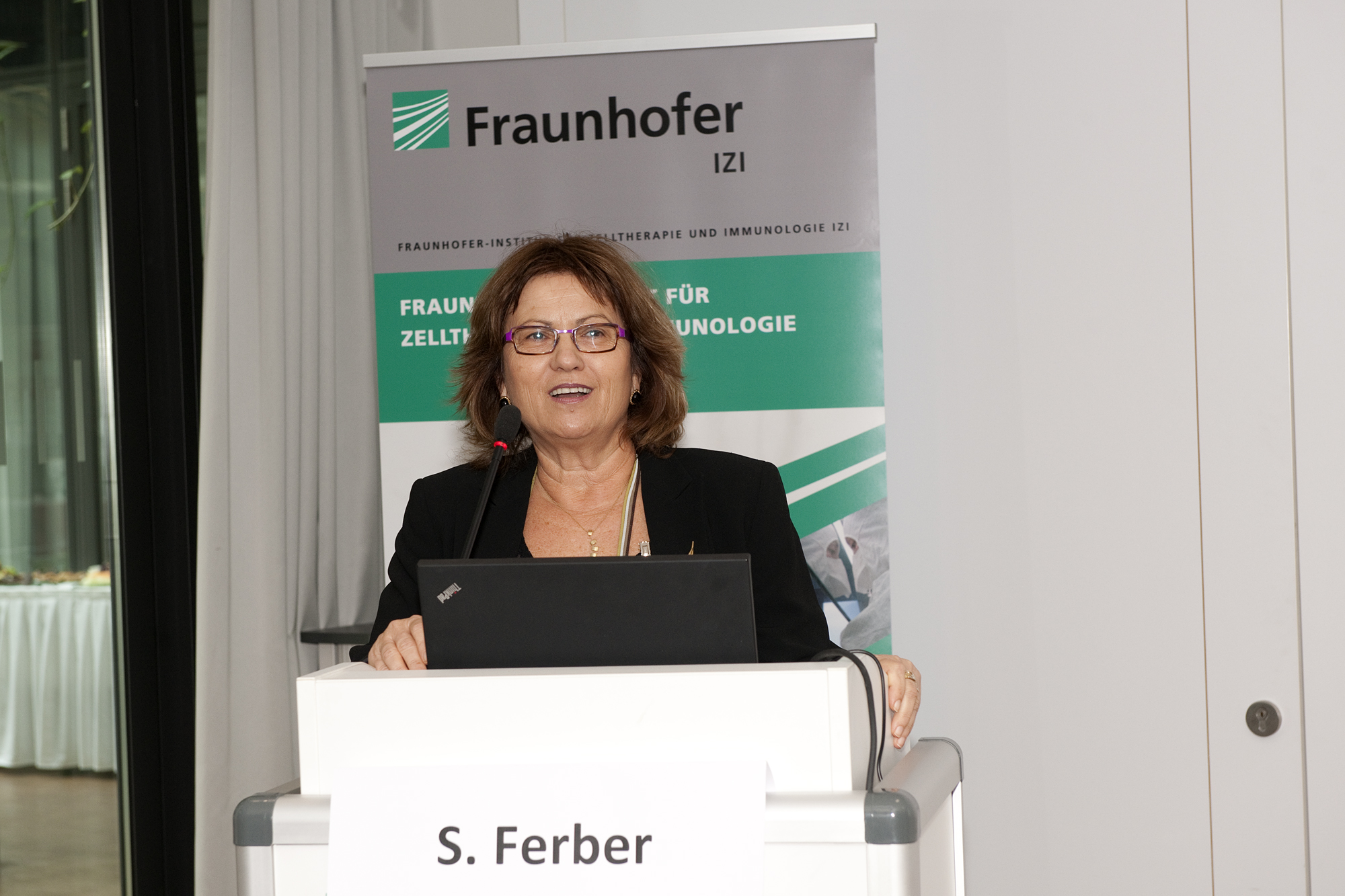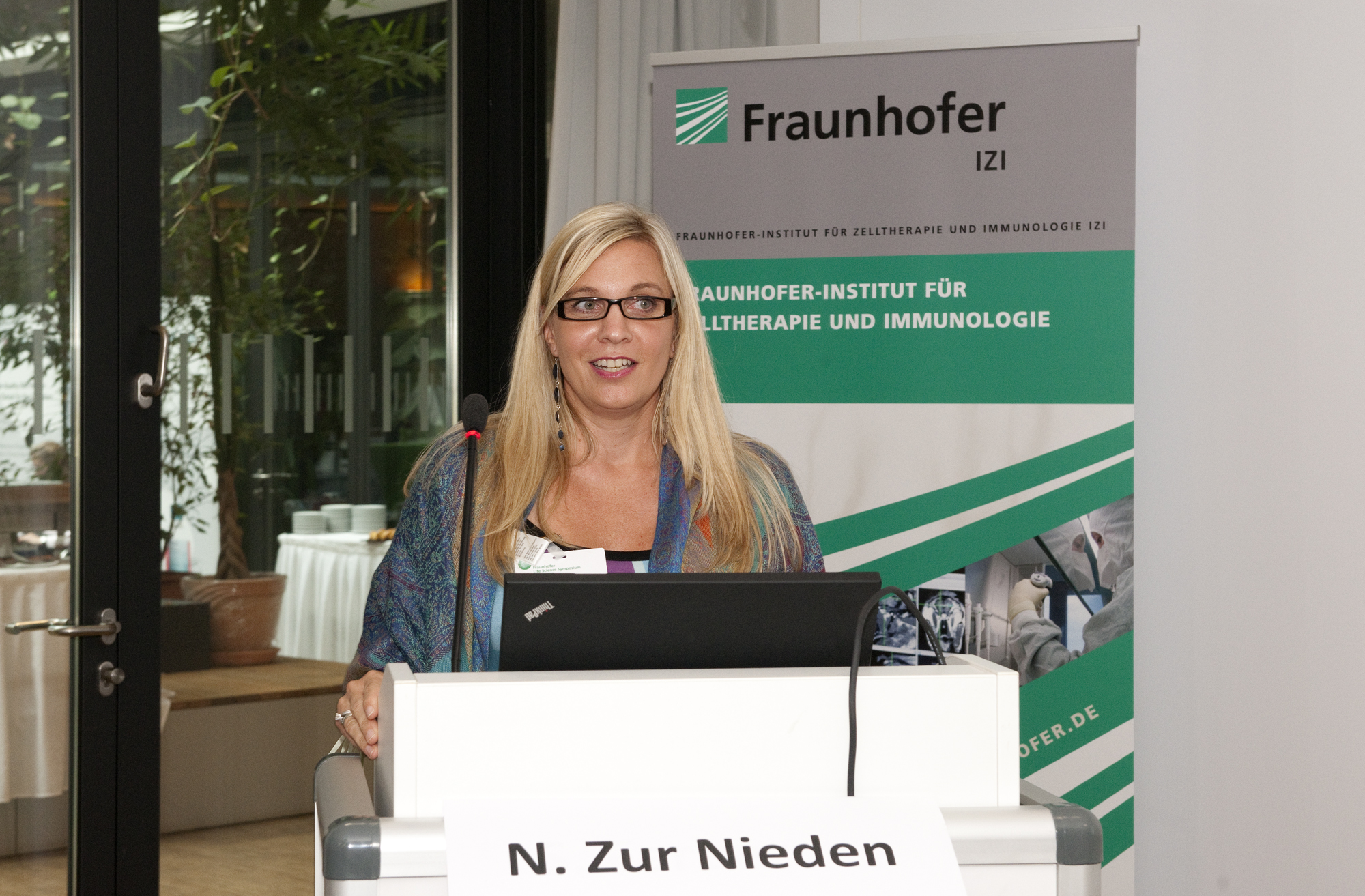Experts discuss new developments in the field of stem cell research and cell therapy
From 9–10 October 2014 around 200 scientists met at the Leipzig Fraunhofer Institute for Cell Therapy and Immunology for the ninth Fraunhofer Life Science Symposium. Held every two years, this year the event focused on the theme "Medicinal Cell Products and Stem Cells for Medicinal Applications".


In recent years biomedical research has revealed numerous promising new approaches for the prevention and treatment of serious illnesses. The issue of stem cells plays a key role in this. With the symposium the Fraunhofer IZI offers international scientists a platform on which they can discuss the latest developments in this field.
The scientific program encompasses three major subject areas: production, manufacture and application. In the first section a paper presented by Sarah Ferber (Centre for Stem Cells, Regenerative Medicine and Tissue Engineering, Sheba Medical Center, Tel Hashomer, Israel) was one major point of interest: "Reprogramming the endocrine pancreas; autologous cell replacement therapy for diabetic patients". She spoke about the possibilities for transforming liver cells into insulin-producing cells. In the future this method could possibly be used to help patients with type 1 diabetes, where the misdirected immune system destroys the body's own insulin-producing beta cells of the pancreas.
A further highlight was the paper presented by Nicole zur Nieden (University of California Riverside, Riverside CA, United States): "Stem cell-assisted drug discovery and risk assessment". This illustrated various ways in which stem cell cultures can be used in the development of medicines and assessment of risks. The aim here is to develop new methods and procedures that enable prognoses of effectiveness and toxicity in humans at an early stage of medicine development, with a higher degree of certainty than was previously achieved.
The Fraunhofer Life Science Symposium brings together up to 200 participants from academic and clinical institutions to discuss the various focal points concerning new technologies, trends and developments. It is organized by the Fraunhofer Institute for Cell Therapy and Immunology IZI. For further information see: